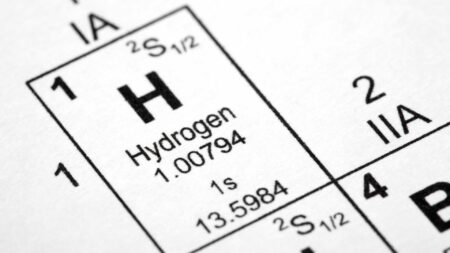The federal government has announced a substantial funding of 160.7 million euros for Bosch’s hydrogen project, emphasizing the immense potential of hydrogen applications in the energy sector. The funding decision was handed over to Bosch CEO Stefan Hartung by Economics Minister Robert Habeck (Greens) in a ceremony held in Renningen, Baden-Württemberg.
The project focuses on the development of stationary fuel cell systems for decentralized power supply, which Hartung refers to as “networked small power plants.” Bosch aims to achieve a significant milestone by becoming the world’s first company to commence mass production of these systems by 2025.
The funding for Bosch’s project is a collaboration between the federal government and the state of Baden-Württemberg. It falls under the category of projects of European interest, allowing member states to provide state support to the economy, subject to rigorous examination by the EU Commission.
The goal of Bosch’s hydrogen project is to revolutionize power supply systems by leveraging stationary fuel cell technology. Fuel cells are electrochemical devices that convert the chemical energy of hydrogen into electrical energy with high efficiency and zero carbon emissions. By utilizing decentralized fuel cell systems, Bosch aims to enhance the reliability, sustainability, and independence of power supply in various applications.
One of the key advantages of stationary fuel cell systems is their flexibility and adaptability to diverse settings. These systems can be integrated into existing infrastructure, such as residential, commercial, and industrial buildings, to provide a stable and continuous power supply. They have the potential to transform these locations into self-sufficient energy hubs, reducing dependency on traditional grid networks and enabling more resilient energy systems.
Bosch’s vision for decentralized power supply aligns with the broader global efforts to transition towards a sustainable and carbon-neutral future. By harnessing the power of hydrogen, a clean and abundant energy carrier, Bosch aims to contribute to the decarbonization of the energy sector and mitigate the impacts of climate change.
The potential impact of Bosch’s hydrogen project extends beyond the environmental benefits. The deployment of stationary fuel cell systems can create new employment opportunities, stimulate economic growth, and foster innovation in the energy sector. Furthermore, the project can help strengthen Germany’s position as a leader in clean energy technologies and support the country’s ambitious climate targets.
However, the path to widespread adoption of stationary fuel cell systems faces several challenges. One significant hurdle is the cost associated with the production and deployment of these systems. While advancements in technology and economies of scale are expected to drive down costs over time, further research and development efforts are necessary to enhance cost-competitiveness and accelerate market penetration.
Additionally, the establishment of a robust hydrogen infrastructure is crucial for the success of fuel cell technologies. The availability of hydrogen refueling stations and distribution networks is essential to support the widespread use of fuel cell systems. Collaborative efforts between government, industry, and other stakeholders are needed to overcome the infrastructure challenges and create an enabling environment for the deployment of decentralized fuel cell solutions.
In conclusion, the federal government’s funding of Bosch’s hydrogen project marks a significant step towards advancing decentralized power supply through stationary fuel cell systems. With ambitious plans for mass production, Bosch aims to pioneer the development of these systems and establish itself as a global leader in the field. While challenges exist, the potential benefits of decentralized fuel cell technologies are substantial, ranging from environmental sustainability to economic growth. By supporting projects like Bosch’s, Germany reinforces its commitment to a clean and renewable energy future.








